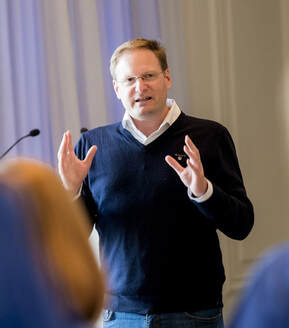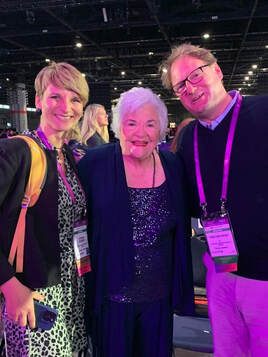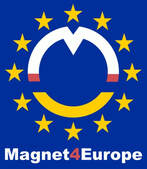 About: Sebastian Dienst is Chief Nursing Officer (CNO) at German Heart Centre Charité (DHZC), former German Heart Centre Berlin (DHZB), with an inspiring journey in nursing. On the one hand he played stock exchange games with his father, and on the other he accompanied his mom working as a community nurse at the age of 14, in the end he decided to pursue nursing on purpose in 1997, to make a difference in healthcare. As a proud father of four and a loving husband to an accomplished Italian nurse with a master’s degree in nursing education, Sebastian brings a wealth of personal and professional experience to his role. Since 2018, he has played a crucial role as CNO at DHZC where he is a key contributor to the commitment to nursing excellence. DHZC is also a part of the Magnet4Europe project, where Sebastian is also actively involved in the process. In January 2024, he will take on the responsibility of representing the international constituency within the ANCC’s Commission on Magnet (COM), succeeding Danny Van heusden. For us, he answered four questions about Magnet4Europe. 1. Sebastian, you are CNO at German Heart Centre Charité (DHZC), which is part of the Magnet4Europe project. What exactly motivated you to participate in this project? It was absolutely clear to me that DHZC would participate in this project. We had been following the Magnet principles at the DHZB for some time, just as I had done at all my other professional stations. The opportunity to advance this concept in Europe, together with like-minded people, had to be seized. In essence, my aim is to prove that all those who have always said it can't be done will be proven wrong. And this in a scientific way. 2. From your perspective, what was the most impressive experience within the Magnet4Europe project? I think what moved us all the most and gave us a lot of strength was the common attitude towards the project. It was wonderful to work with so many hospitals who felt connected to the Magnet principles and, above all, shared their insights and best practices in a very honest and profitable way. If we are honest, this is not always common, at least in Germany, and was a rewarding experience for everyone. A big compliment goes to TU Berlin and its employees and their efforts to keep this community together. Not only on a scientific level, but I think also on an emotional level due to their special way of doing things, which is no less important. In the end, I think there is an important guiding principle for everyone: You don't have to take responsibility for the system; you can change a lot yourself.  3. As future commissioner on Magnet for the upcoming four years, could you share your goals and aspirations for this role? I think my most important goal is to bring the Magnet principles and their evidence closer to many international partners. It is not a system that is only effective in the USA or English-speaking countries. However, we also have to understand that Magnet was created in America under certain conditions and is in part very specifically geared towards this context. We will have to have this discussion internationally without diluting the evidence and effectiveness of the principles. Benchmarking is probably one of the most important topics, especially in "young" Magnet countries. 4. We are in the final year of the Magnet4Europe project. What do you consider the most significant accomplishments within the Magnet4Europe project and what would you like to achieve for your hospital by June 2024?
The mandate from my Board of Directors is pretty clear: Make the DHZC magnetic and bring the evidence to it. We won't achieve this by June 2024, but with the support of all our partners, we have achieved a lot that seemed unthinkable years ago. I would also like to praise the Benchmarking Initiative B:IN Pflege, which was founded by "Young Wild Nursing Managers" in this initiative and makes a very important contribution to the international discussion. But above all, there is the friendship that has developed between the existing Magnet hospitals and the hospitals in Europe. The continuation of this (T)Winning partnership should become a fundamental new model in the Magnet community worldwide. Comments are closed.
|

